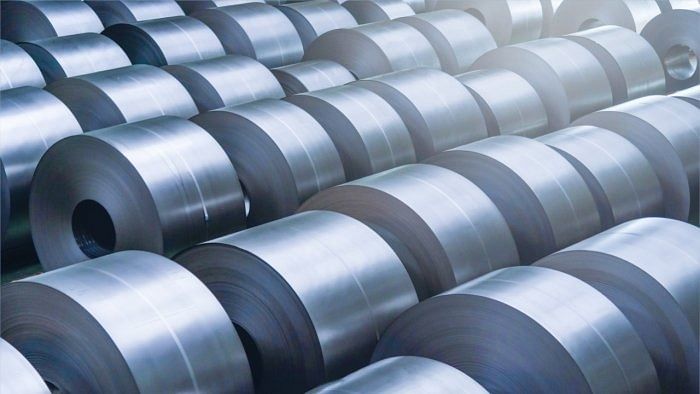
The production-linked incentive (PLI) scheme for specialty steel will prove to be a "game changer" for the industry as the move is expected to increase the output of value-added steel and see introduction of new age technologies in the sector, Union minister Faggan Singh Kulaste has said.
On July 22, the Union Cabinet chaired by Prime Minister Narendra Modi approved the Rs 6,322-crore PLI scheme to boost production of specialty steel in India, attract fresh investments and create new job opportunities in the sector.
The scheme aims to attract an additional investment of about Rs 40,000 crore and lead to a capacity addition of 25 million tonnes (MT), besides generating 5.25 lakh job opportunities.
On the issues being faced by the domestic steel sector, Minister of State for Steel Kulaste told PTI, "The challenge is to develop Indian steel sector as more efficient, competitive and (to be) capable of producing quality steel including value-added steel... (as also) enhance per capita steel consumption."
Further, other focus areas are availability of raw material at competitive price and to be a world leader in energy efficiency and sustainability, he added.
Replying to another question related to the steps taken to tackle these challenges, he said the government has already taken various initiatives.
Kulaste said that a vibrant domestic steel industry is important for a developing economy as it is a critical input across major sectors such as construction, infrastructure, automotive, capital goods, defence, rail etc.
"Launching of game changer PLI scheme (will) increase domestic production of value-added steel and herald the introduction of new technologies, he said.
In 2017, the government approved the National Steel Policy (NSP) 2017 to create a globally competitive steel industry in India. Under the NSP 2017, India aims to scale up its annual steel making capacity to 300 million tonnes (MT) and per capita steel consumption to 160 kgs, he said.
The Domestically Manufactured Iron & Steel Products (DMI&SP) policy, approved earlier, mandates to provide preference to domestically manufactured iron and steel products in government procurement.
The minister further informed that the steel scrap recycling policy has been notified. It aims to secure raw material availability to IF/EAF (Induction Furnace/Electric Arc Furnace). This will also reduce imports of scrap which is currently 7 million tonne, out of a total demand of 22-25 million tonnes.